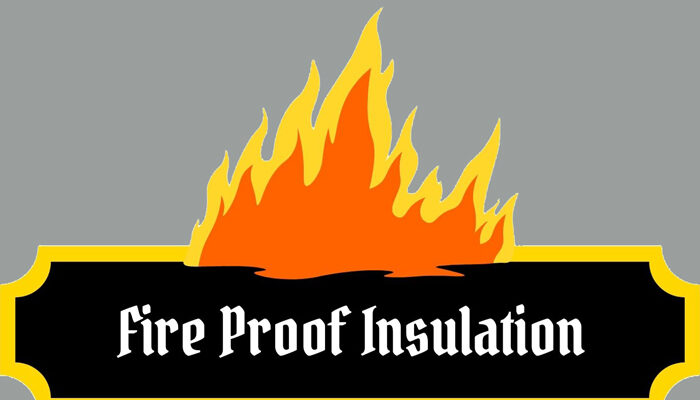
When you’re considering upgrades to your home, it’s natural to veer towards the cosmetic. After all, that’s often the things that give your home more value on the market. Alternatively, it might be about giving yourself some extra space. However, insulation is one housing upgrade that often gets overlooked. Home insulation technology has evolved, meaning many homes across the country still have an inferior product.
Improving your insulation has financial benefits because you can reduce energy costs. But there is also a safety element, because most older homes don’t havefire proof insulation. By upgrading your insulation, you can save money and give your family some extra protection against fire.
Find out what insulation you have
If you’ve decided to upgrade your home’s insulation, the first step is to find out what you have. In an older home, it’s likely you don’t have fireproof insulation, but it’s still worth checking. If you’ve never thought about it before, you may find you don’t even have insulation!
Firstly, check if you have easy access under your house, you can check whether you’ve got underfloor insulation. The same goes for your roof cavity, because most people can access this easily. You can poke your head into the roof and get a quick view of what ceiling insulation you have.
The harder part is checking wall insulation, because you’ll need to remove some plaster. This is why many people choose to combine an insulation upgrade with other renovations.
What does fire proof insulation do?
Fireproof insulation protects your family and home by slowing the spread of fire. Particularly wall insulation, because it often sits in between pieces of flammable timber. Building materials have also advanced in terms of combustibility, but you’ll find older homes aren’t rated particularly well for fire.
Quality insulation is actually made from 80% recycled glass, giving it an inherent fireproof quality straight away. Essentially, the idea is that fireproof insulation can’t burn, so if a fire breaks out in your home, the insulation actually slows the spread of fire. Even in older homes with a lot of flammable timber, your insulation slows the spread and gives you and your family more time.
In order to be classified as non-combustible, insulation must meet certain building standards. Ultimately, it’s been deemed that the material will not be the cause of a fire, and that it will also slow the spread.
Do your product research
When it comes down to it, product research is your best friend. Narrow down your search and find out everything you can about the products. Cost shouldn’t be an issue when your family’s safety is at stake. In any case, most fireproof insulation is affordable these days.
If you’re dealing with retailers and suppliers, ask them what makes their insulation fireproof. Don’t be afraid to ask whether it has met the strict building codes for non-combustibility. Glasswool insulation is made from recycled glass making it a good option. However, another tip is to check for a lack of petro-chemicals in the binders.
Leave a Reply